Megan Yeo - Head of Curriculum (Secondary)
 Lifelong learning and 21st-century skills are crucial for students as they prepare for a rapidly changing world. Lifelong learning fosters adaptability, critical thinking, and a growth mindset, enabling students to continuously acquire new knowledge and skills. This is essential in a world where technology and job markets evolve quickly. The future of work looks very different for a 15-year-old today, who is said to potentially have up to 17 different jobs over 5 careers in their lifetime. It is important that we are equipping students with ‘critical life skills’ and shaping them into future-ready individuals who will thrive.
Lifelong learning and 21st-century skills are crucial for students as they prepare for a rapidly changing world. Lifelong learning fosters adaptability, critical thinking, and a growth mindset, enabling students to continuously acquire new knowledge and skills. This is essential in a world where technology and job markets evolve quickly. The future of work looks very different for a 15-year-old today, who is said to potentially have up to 17 different jobs over 5 careers in their lifetime. It is important that we are equipping students with ‘critical life skills’ and shaping them into future-ready individuals who will thrive.
21st-century skills, such as digital literacy, creativity, communication, collaboration, and problem-solving, equip students to navigate complex challenges and succeed in diverse environments. By embracing these concepts, students become more resilient, innovative, and capable of contributing meaningfully to society, ensuring they are well-prepared for future opportunities and challenges. These transferable skills allow young people to become agile, adaptive learners equipped to navigate personal, academic, social and economic challenges (UNICEF, 2019).
While these skills are integrated into the daily curriculum, it’s crucial to offer opportunities beyond the classroom for students to further engage with and apply them. So, how do we achieve this in the Secondary School at St Andrews?
IC Program
Our flagship entrepreneurship program, the Innovate and Create (IC) program, is a co-curricular program for students in Years 7 to 12. It involves students acknowledging either a global or local problem, ideating and prototyping a solution and pitching to a guest of industry experts and judges.
Head of Business Terri Myles created this program with Baden U’Ren especially for our students to build entrepreneurial capabilities. Our program forms community connections with local entrepreneurs, St Andrews Alumni, and Xplor Education, who support our pitch winners with a two-day intensive workshop in Melbourne, helping them build on their prototypes, marketing strategies and pitches. This program fosters innovation and practical skills, preparing students for real-world challenges and enabling students to show empathy for others. We see students succeed in a different way, with no grades given, success is measured purely by students completing the program and pitching their unique idea. It is more about the process rather than the final product.
Our past IC success stories include alumni Ella F (Essential Bees), who continues to build on her entrepreneurial skills through studying at Bond University and current Year 11 student Annie R (My Voice Communications) who continues to pursue her idea of giving non-verbal people a voice through a Bluetooth speaker necklace.
Innov8
Our current Year 8 students are participating in a whole year course that focuses on building entrepreneurial capabilities called Innov8. Established this year, Innov8 has a focus on teamwork, collaboration, creativity and critical thinking. Students are working in small teams to ideate a solution to a problem they have identified. Throughout the process, students have participated in workshops on overcoming fear of failure and judgement as well as the vital and much needed skills of collaboration. This again involves no marks or grading, so students have the ability to take risks and learn from their mistakes. The culminating event of this program is an Innov8 trade display evening, where students will stand behind their ideas and prototypes and explain to parents what they were able to create and learn over the year. Selected students will also pitch their ideas to parents, who will vote on their favourite innovation.
Year 9 Personal Project
Studies show that an estimated 20 per cent of students are consistently disengaged with learning, with the main age of disengagement being 14 year-olds. In Australia, this issue is particularly concerning, with reports indicating that up to 40 per cent of students are disengaged from learning, leading to them falling one to two years behind their peers. Additionally, a study found that only 55 per cent of Year 9 students find school engaging, a significant drop from the 70 per cent engagement rate observed in Year 7 (Grattan Institute). This highlights the critical need for early intervention and support to keep students engaged in their education.
In Year 9, students engage in a personal project, where they select an area of interest or passion to explore further. This could range from learning new art techniques to making surfboards, candle making, or experimenting with cooking. Students reflect on their learning journey and present their projects during a parent evening. It’s truly impressive to see students stand by their projects, explaining what they learned and why they decided on this area of interest. It is a way for students to succeed and form a love of learning.
Summary
Schools and students benefit greatly from implementing programs that build 21st-century skills. These programs prepare students for the future by fostering critical thinking, creativity, and digital literacy. They help students become adaptable and resilient, ready to tackle the challenges of a rapidly evolving world. Additionally, such programs enhance student engagement and motivation, leading to better academic outcomes and personal growth. By investing in these skills, schools ensure their students are well-prepared for successful careers and meaningful contributions to society.
Megan Yeo
Head of Curriculum (Secondary)





